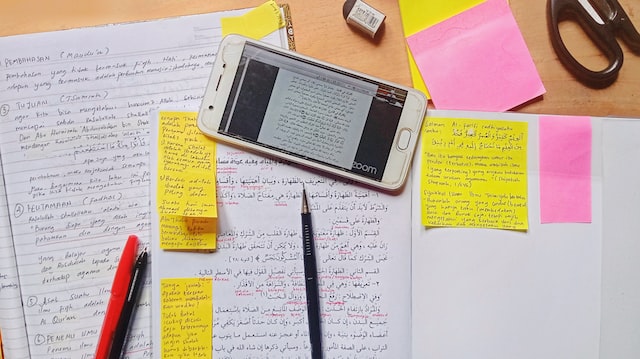Unleashing The Power Of Flash Fiction
Flash fiction is a unique and intriguing form of storytelling that has gained popularity in recent years. Despite its short length, usually under 1000 words, flash fiction packs a powerful punch with its concise and impactful narratives. This style of writing challenges authors to convey a complete story or idea in a limited space, making it a skill worth mastering for any writer. In this article, we will delve into the world of flash fiction, exploring its techniques, benefits, and how you can elevate your own skills in this art form. So, join us as we unravel the magic of flash fiction and demystify the secrets behind this captivating genre.
Exploring Flash Fiction Writing
Flash fiction, also known as micro fiction or sudden fiction, has gained popularity in recent years as a unique and captivating form of storytelling. It is a brief, concise form of writing that aims to tell a complete story in a limited number of words. Typically, flash fiction stories range from 300 to 1,500 words, with some even shorter, encompassing the entire narrative in just a few paragraphs. This genre has challenged writers to convey profound and powerful messages in a condensed format, making it a thrilling and immersive experience for both the writer and the reader.
If you are interested in exploring this dynamic and fast-paced form of storytelling, then read on as we delve into the world of flash fiction writing.
Understanding Flash Fiction
Before diving into the techniques and skills needed to master flash fiction writing, it is essential to understand what it is all about. The term "flash fiction" was coined by James Thomas, Denise Thomas, and Tom Hazuka in their anthology, Sudden Fiction, published in 1986. It refers to short, self-contained stories that develop quickly and often have unexpected twists or turns.
Compared to short stories, which can range between 1,500 to 10,000 words, flash fiction is incredibly brief and focuses on a single moment or event. It requires the writer to skillfully craft a full narrative with a beginning, middle, and end in just a few hundred words.
Flash fiction is not just about being concise; it also involves creating a powerful impact on the reader. It is an art form that challenges writers to strip down their storytelling to its bare essentials, leaving out any fluff or unnecessary details. Every word must serve a purpose and contribute to the overall impact of the story.
Mastering Flash Fiction Techniques
Like any other form of writing, mastering flash fiction requires practice and a deep understanding of storytelling techniques. Here are some essential tips that can help elevate your flash fiction writing:
- Create a strong opening: With such a limited word count, it is crucial to grab the readers attention from the very beginning. Start with an intriguing first line that will draw the reader in and make them want to continue reading.
- Focus on one moment or event: Flash fiction is all about capturing a single moment or event. Avoid trying to cover too much ground; instead, focus on developing a specific moment in time and explore it in depth.
- Make every word count: The limited word count means that each word must carry its weight in the story. Choose your words carefully and avoid using unnecessary adjectives or descriptions. Every sentence should advance the plot or reveal something about the characters.
- Leave room for interpretation: Flash fiction often leaves room for interpretation and encourages readers to fill in the gaps. This adds depth and intrigue to the story, making it more memorable.
- Use vivid imagery: With a limited word count, it is essential to make every sentence impactful. Use vivid imagery and sensory details to bring your story to life and engage the readers imagination.
These techniques can help you craft a compelling and concise flash fiction story that will leave a lasting impression on your readers.
Unveiling the World of Flash Fiction
One of the most exciting aspects of flash fiction writing is its ability to explore a wide range of genres and themes. From romance and mystery to horror and science fiction, the possibilities are endless. This allows writers to experiment and push the boundaries of traditional storytelling.
Moreover, flash fiction also provides the opportunity to experiment with different writing styles and techniques. It encourages writers to think outside the box and explore unique ways to tell a story. This makes it an incredibly versatile and dynamic form of writing that continues to evolve and surprise readers.
Aspiring writers can find inspiration and guidance in online resources, such as Flash Fiction: What It Is and How to Write It, available on WorleyGig. These resources provide valuable insights into the world of flash fiction, including tips, examples, and prompts to help writers develop their craft.
Elevating Your Flash Fiction Skills
Like any skill, writing flash fiction takes time and effort to perfect. Here are some exercises that can help you elevate your flash fiction skills:
- Write in different genres: Experiment with writing flash fiction in different genres to expand your horizons and discover new techniques.
- Practice writing prompts: Writing prompts can be an excellent way to spark creativity and develop story ideas that you might not have thought of otherwise.
- Join a writing community: Connecting with other writers can provide valuable feedback and support for your work.
- Edit ruthlessly: With such a limited word count, editing is crucial. Be ruthless in cutting out any unnecessary words or sentences.
Remember, practice makes perfect, and the more you write, the more you will hone your skills and discover your unique style of flash fiction writing.
Navigating the Realm of Flash Fiction
As with any form of writing, there are no strict rules when it comes to flash fiction. While there are guidelines and techniques to follow, ultimately, it is up to the writer to navigate the realm of flash fiction and find their own voice. It is a form of creative expression that allows writers to explore different ideas and narratives. Embrace the freedom and let your imagination guide you as you delve into the world of flash fiction.
Decoding Flash Fiction Writing
While flash fiction may seem like a simple and straightforward form of storytelling, it requires skill and precision to craft a compelling and complete narrative in such a limited word count. It takes practice and dedication to master, but with the right tips and techniques, anyone can learn the art of flash fiction writing.
Just like any other form of writing, the key is to keep writing. Write, edit, and revise until you are satisfied with your story. Linger over every word, and dont be afraid to experiment and take risks. With time and practice, you will become a master of flash fiction writing.
Unraveling the Art of Flash Fiction
Flash fiction can be a challenging yet rewarding form of writing. It allows writers to tell captivating stories in a concise and impactful way. With its rising popularity, now is the perfect time to delve into the world of flash fiction and discover its magic for yourself. With the right techniques, inspiration, and resources, you can unlock your potential as a flash fiction writer and create powerful and memorable stories that will captivate readers.
So, what are you waiting for? Start exploring the world of flash fiction and unravel its art today!
In conclusion, flash fiction writing is a unique and powerful form of storytelling that challenges writers to pack a punch into a limited amount of words. Through exploring this genre, understanding its techniques, and mastering its craft, writers can unlock the full potential of flash fiction. By unveiling the world of flash fiction, elevating skills, navigating its realm, decoding its secrets, and unraveling its art, writers can demystify and discover the magic of flash fiction. So whether you are a seasoned writer or just beginning your literary journey, dont be afraid to delve into the world of flash fiction and unleash your creativity through this captivating and dynamic form of writing. With the right tools and techniques, anyone can become a master of flash fiction and create stories that leave a lasting impact on readers. So go ahead and take on the challenge of flash fiction and see where it takes you. Happy writing!




0